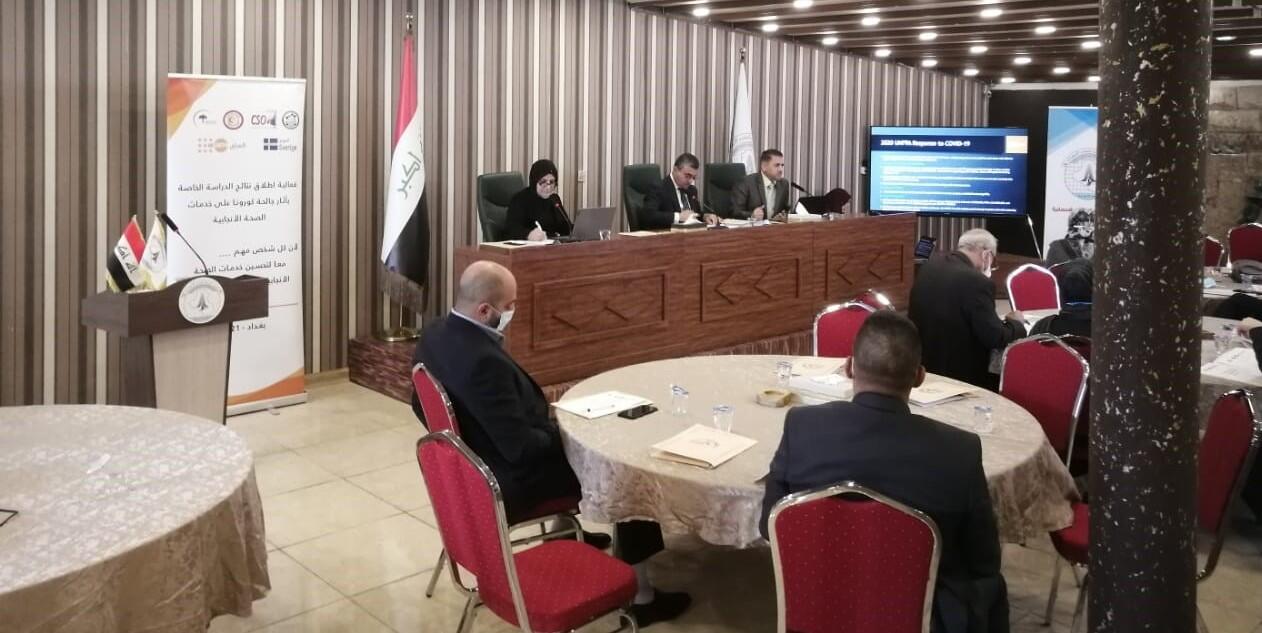12 February 2021; Baghdad, Iraq – The Central Statistical Organization (CSO) and the Kurdistan Region Statistics Office (KRSO), under supervision of both ministries of Health in Federal Government and the Kurdistan Regional Government, unveiled on 10 February, the results of the rapid assessment of the COVID-19 impact on the reproductive health services and facilities across Iraq.
The assessment, conducted in collaboration with the Federal Ministry of Health and Environment, the Ministry of Health at the Kurdistan Regional Government and the Iraqi Statistical Association, with technical support from UNFPA and financial support from the Swedish Government, through the Swedish International Development Cooperation Agency (Sida), provides qualitative and quantitative data on the services provided to women and girls in the health centres and hospitals.
The evaluation aims to analyse the impact of the pandemic on the quality of reproductive health services and the health system in the country. It identifies the gaps in the system, the service provision and the capacity of health providers. The assessment also addresses social protection and reproductive health services at institutional and human resources levels.
The assessment showed gaps in information and awareness related to COVID-19 protection measures, including masks wearing and social distancing. Moreover, it highlighted shortages in the main reproductive health medications, triage measures, as well as Personal Protective Equipment (PPE) in targeted health facilities.
Speaking at the event, UNFPA Representative to Iraq, Dr Rita Columbia said: "This assessment will allow government partners to strengthen the capacity of the health system and health providers to elevate the quality of the services offered to women and girls across the country. No woman should die from giving birth or from lack of access to services, even during pandemics.”
“UNFPA will continue to work with partners to enhance national capacities to meet emerging development and humanitarian needs, in particular, health systems and women empowerment: we are determined to ensure women and girls have access to quality sexual and reproductive health services,” she concluded.
The assessment covered 107 Health centres and 10 hospitals in five governorates across Iraq; Erbil, Baghdad, Salah Al-Din, Najaf and Basra. Service providers including doctors, 275 health workers, 225 service employees and 185 clients were interviewed. The urgent need to address the shortage of PPE, capacity building of health workers and logistical support for managing the crisis were among the immediate recommendations of the assessment.
*******
UNFPA, the United Nations Population Fund, delivers a world where every pregnancy is wanted, every childbirth is safe, and every young person's potential is fulfilled.
For more information or media inquiries, please contact Ms Salwa Moussa, Communications Specialist, smoussa@unfpa.org


